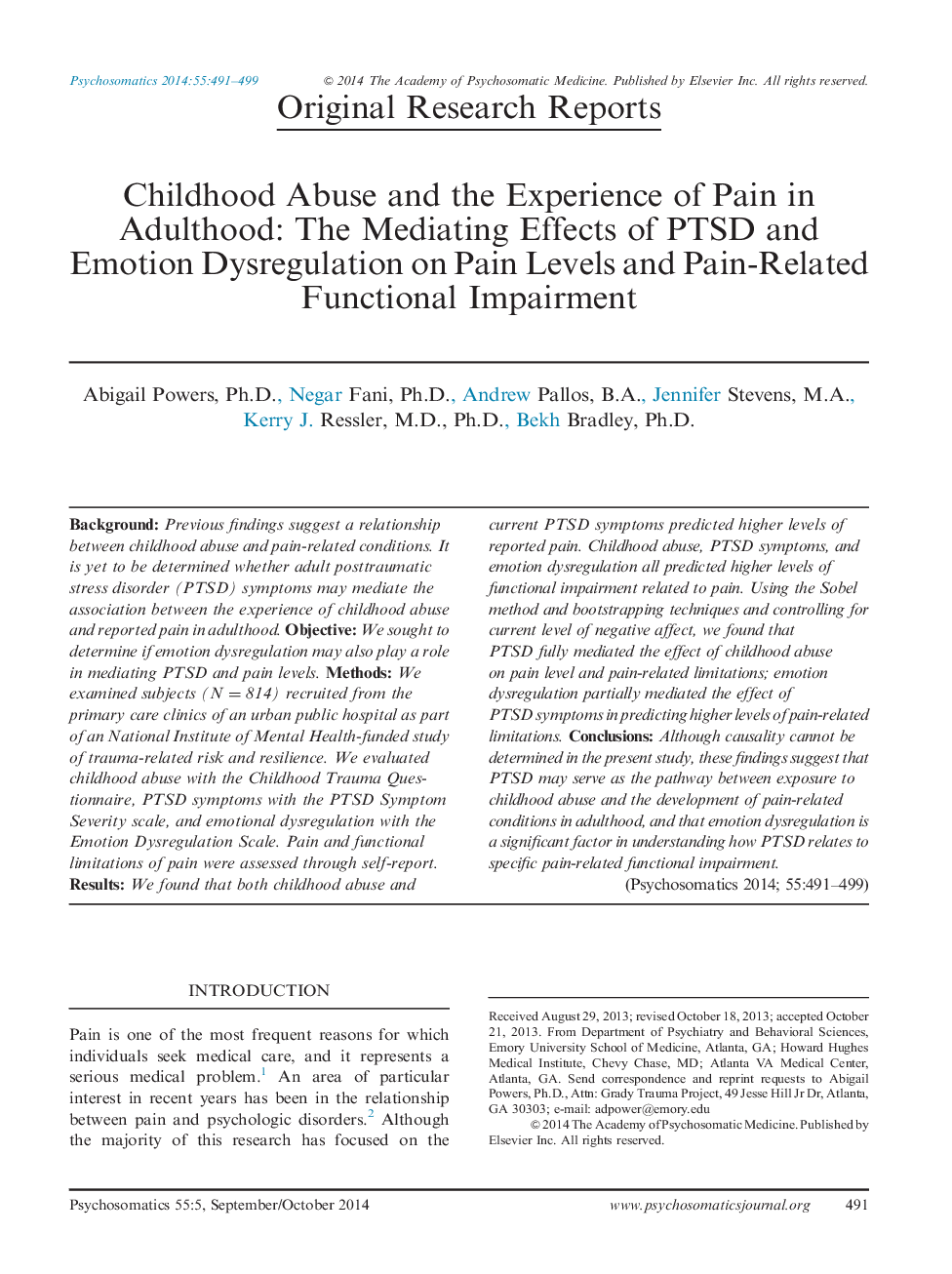| Article ID | Journal | Published Year | Pages | File Type |
|---|---|---|---|---|
| 337878 | Psychosomatics | 2014 | 9 Pages |
BackgroundPrevious findings suggest a relationship between childhood abuse and pain-related conditions. It is yet to be determined whether adult posttraumatic stress disorder (PTSD) symptoms may mediate the association between the experience of childhood abuse and reported pain in adulthood.ObjectiveWe sought to determine if emotion dysregulation may also play a role in mediating PTSD and pain levels.MethodsWe examined subjects (N = 814) recruited from the primary care clinics of an urban public hospital as part of an National Institute of Mental Health-funded study of trauma-related risk and resilience. We evaluated childhood abuse with the Childhood Trauma Questionnaire, PTSD symptoms with the PTSD Symptom Severity scale, and emotional dysregulation with the Emotion Dysregulation Scale. Pain and functional limitations of pain were assessed through self-report.ResultsWe found that both childhood abuse and current PTSD symptoms predicted higher levels of reported pain. Childhood abuse, PTSD symptoms, and emotion dysregulation all predicted higher levels of functional impairment related to pain. Using the Sobel method and bootstrapping techniques and controlling for current level of negative affect, we found that PTSD fully mediated the effect of childhood abuse on pain level and pain-related limitations; emotion dysregulation partially mediated the effect of PTSD symptoms in predicting higher levels of pain-related limitations.ConclusionsAlthough causality cannot be determined in the present study, these findings suggest that PTSD may serve as the pathway between exposure to childhood abuse and the development of pain-related conditions in adulthood, and that emotion dysregulation is a significant factor in understanding how PTSD relates to specific pain-related functional impairment.
